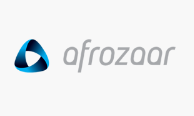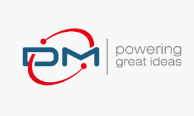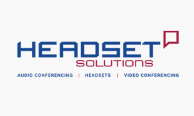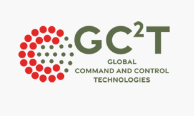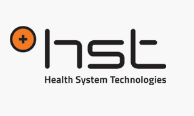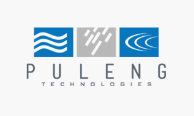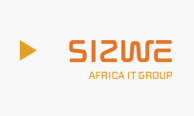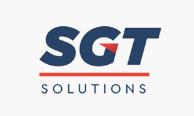Powering South Africa’s journey
CREATING SUSTAINABLE VALUE FOR ALL BY ADVANCING UN SDGs
Over and above delivering sustainable value creation for our internal stakeholders, at AYO, we embrace our responsibility and moral duty, as a conscientious corporate citizen, to support and promote the advancement of our nation as a whole. This is best achieved through commitment to and diligent progression of UN SDGs, as they provide a common purpose and
language for governments and businesses the world over to work together to find meaningful solutions to global problems. Thus, AYO makes a concerted effort to contribute to the meeting of national developmental objectives and tracks progress against the “universal lens” which is the SDG framework.
ZERO HUNGER
Food insecurity has long been an issue in South Africa with 11% of the  population (6.5 million people) suffering from hunger in 2019, according to Statistics SA. The situation was exacerbated by the sudden COVID-19 lockdown and NPOs and community organisations had their hands full trying to feed the millions of households who have lost their income in the pandemic. Although AYO historically has focused its social responsibility programmes in the fields of education and entrepreneur support, where we are best suited to make meaningful impact, we could not stand aside as spectators to this national emergency.
population (6.5 million people) suffering from hunger in 2019, according to Statistics SA. The situation was exacerbated by the sudden COVID-19 lockdown and NPOs and community organisations had their hands full trying to feed the millions of households who have lost their income in the pandemic. Although AYO historically has focused its social responsibility programmes in the fields of education and entrepreneur support, where we are best suited to make meaningful impact, we could not stand aside as spectators to this national emergency.
AYO contributed over R40,000 in food vouchers and donations to Ladles of Love, Hunger Has No Religion, Home of the Aged and Ill and other community-based organisations, thus directly assisting over 10,000 beneficiaries, including 38 frail care recipients, in these precarious and desperate times.
GOOD HEALTH AND WELL-BEING
The taxi industry is a fundamental segment of the South African public  transport system and plays an integral role in the country’s economy. Besides employing some 400 000 people, it drives over 14 million commuters to and from work each day, enabling them to earn a living and take an active part in the economy. Like most economic sectors, the taxi industry was grounded to a halt by the COVID-19 pandemic.
transport system and plays an integral role in the country’s economy. Besides employing some 400 000 people, it drives over 14 million commuters to and from work each day, enabling them to earn a living and take an active part in the economy. Like most economic sectors, the taxi industry was grounded to a halt by the COVID-19 pandemic.
With the ease of lockdown restrictions, the economically strained workforce was eager to return to work, yet commuters and taxi operators alike, were exposed to significant risk as personal protective equipment was scarce and expensive. Without basic hygiene and screening measures such as hand sanitisation and temperature checks, the taxi industry could easily transform from an economic enabler for commuters to a contributing factor to the country’s COVID-19 infection rate.
AYO took the initiative to address the issue and donated 200 infra-red thermometers and 30 litres of hand sanitiser to taxi associations to promote the good health and well-being of vulnerable South African commuters.
QUALITY EDUCATION
The disparity of quality education between the South African public and  private schooling institutions is prime evidence of the enormous wealth gap dividing the country. While a small minority of students have unrestricted access to world-class science facilities and the latest technology at their fingertips in well-funded private schools, the vast majority of pupils are still to experience the true power of quality education.
private schooling institutions is prime evidence of the enormous wealth gap dividing the country. While a small minority of students have unrestricted access to world-class science facilities and the latest technology at their fingertips in well-funded private schools, the vast majority of pupils are still to experience the true power of quality education.
Education and technology, which are the focal points of AYO’s investments, are inextricably connected. Thus, the lion’s share of our CSI initiatives is centred around promoting access to, and nurturing the love for, quality education amongst the less-fortunate South African school goers. We carry out these programmes in partnership with well-established organisations in the field, such as the Masinyusane foundation and Joyful Computer Literacy.
In the 2020 financial year, our contributions benefited over 900 children in rural Polokwane, Eastern Cape and Kwazulu Natal, through four literacy programmes, disbursing over 42 000 hours of literacy coaching and over 8 000 books through AYO-funded school libraries.
GENDER EQUALITY
Ending all discrimination against women and girls is not just a basic human  right. It is crucial for sustainable future. Empirical evidence exists that empowering women and girls helps overall economic growth and development. The STEM (science, technology, engineering and mathematics) fields still represent the highest disparity in gender equality, with less than 30% of students pursuing further education and careers in these fields being young women.
right. It is crucial for sustainable future. Empirical evidence exists that empowering women and girls helps overall economic growth and development. The STEM (science, technology, engineering and mathematics) fields still represent the highest disparity in gender equality, with less than 30% of students pursuing further education and careers in these fields being young women.
At AYO, we believe that encouraging young girls to explore training and employment opportunities in the STEM area will be a powerful enabler for future economic development in South Africa. Thus, we have partnered with Techno Girl Campaign – a collaborative initiative between UNICEF, the Department of Education and the Presidency – in order to play an active role in the practical engagement of female learners in these critically important fields.
The programme involves hands-on mentorship, training and job shadowing opportunities for girls in secondary school, during holidays over a sustained three-year period to fully prepare them for further education and careers in science and technology-related fields. While the implementation of remote working protocols due to the pandemic disrupted the progress of the project during the reporting period, a virtual job shadowing programme was developed to continue our work on the campaign in the short-term.
AFFORDABLE AND CLEAN ENERGY; RESPONSIBLE CONSUMPTION AND PRODUCTION; CLIMATE ACTION
Although technology’s impact on the environment is trivial in comparison to more traditional industries, such as mining, aviation or shipping, the rapid proliferation of devices and their ever-extending usage is quickly increasing the importance of affordable, clean energy for the sector and demanding the prioritisation of climate action and responsible production and consumption by leading technology-focused businesses.



The world’s “tech addiction” has resulted in 50 billion smart devices collecting, analysing and sharing data in 2020, which also means exponential growth in the demand for transistors and microprocessors, and it is not going to subside anytime soon. But while this is great news for the economy, it is a lot less optimistic for our carbon consumption. It is, therefore, imperative that the technology sector of the future has reliable, affordable and consistent access to clean energy sources and actively pursues resources other than coal and fuel to power its energy needs. It is with that “big picture” vision in mind that AYO has expanded its horizons to become an enabler of responsible technology production and consumption for the industry in South Africa and actively pursue investment in the renewable energy field. While the transaction was not completed during the reporting period due to COVID-19 related delays, we look forward to reporting on our positive impact towards these critically important SDGs in the upcoming year.
DECENT WORK AND ECONOMIC GROWTH
SDG 8 recognises the importance of sustained economic growth and high  levels of economic productivity through the creation of well-paid quality jobs. Thus, it is of particular importance in the South African context where besides high rates of unemployment, the substantial national wealth gap is powered by the abundance of low-skilled and low-waged workforce. At AYO, we acknowledge and embrace our responsibility to promote the achievement of this paramount developmental objective in order to drive inclusive and sustainable economic transformation.
levels of economic productivity through the creation of well-paid quality jobs. Thus, it is of particular importance in the South African context where besides high rates of unemployment, the substantial national wealth gap is powered by the abundance of low-skilled and low-waged workforce. At AYO, we acknowledge and embrace our responsibility to promote the achievement of this paramount developmental objective in order to drive inclusive and sustainable economic transformation.
Our success in the technology industry is contingent on our ability to attract and retain critical rare skills, which can be challenging in this age of global mobility for talented individuals. For that reason, we place a strong emphasis on “growing our own timbre”, thus achieving two important objectives simultaneously – nurturing and developing talent and providing opportunity for decent work.
AYO Academy is our flagship empowerment initiative in this respect, and it continues to grow from strength to strength each passing year. Through the Academy, 21 participants have joined the Group in various learnership and internship initiatives during the reporting period. These programmes have been a great enabler for young people from disadvantaged backgrounds to gain valuable workplace experience and promote access to future employment opportunities. All of the graduates of our 2019 internship programme have further been absorbed into permanent positions across the Group.
In addition, our partnership with the Masinyusane foundation, referenced under SDG 4, has resulted in the hiring, training and employment of 46 literacy coaches, themselves previous beneficiaries of the educational programme, who lead and staff the project, thus creating an upward cycle of education, empowerment, employment and upliftment of the community
INDUSTRY, INNOVATION AND INFRASTRUCTURE
Building resilient infrastructure and fostering innovation are crucial drivers of  economic growth and development. Technological progress, which is an additional focus of this SDG, is also an important way to facilitate sustainable development. And while we agree that as an under-developed country, South Africa needs to accelerate the development of its industrial sector, we are of the view that infrastructure investment in any field is important and have again, prioritised the educational sector as a doubly-beneficial investment in both infrastructure and the future leaders of our country.
economic growth and development. Technological progress, which is an additional focus of this SDG, is also an important way to facilitate sustainable development. And while we agree that as an under-developed country, South Africa needs to accelerate the development of its industrial sector, we are of the view that infrastructure investment in any field is important and have again, prioritised the educational sector as a doubly-beneficial investment in both infrastructure and the future leaders of our country.
Building educational facilities, particularly science and technology labs in underfunded areas, is not just an investment in infrastructure. It is also an investment in the future of bright, young minds and a positive step towards reducing inequality and providing access to quality education for all. Thus, AYO participates in a number of partnerships with stellar NPOs like the SAME and Sakhikamva foundations to provide state-of-the-art learning and training facilities at some of South Africa’s most underprivileged schools.
During the reporting year we saw the completion of two projects in the field, namely the building, equipment and opening of a science and technology lab at Kulani High School in Langa, Cape Town and that of the 4iR STREAM lab at Goodwood College in Ruyterwacht. While technically speaking these investments were in brick, mortar and equipment of the physical facilities, we view our involvement in the projects as a contribution to the building of a better, stronger South Africa for tomorrow.
REDUCED INEQUALITY
In a largely unequal society, opportunities are scarce for many marginalised  groups and differently-abled people in South Africa who remain one of the hardest-hit clusters with limited access to education and employment. Yet, in the pursuit of a truly inclusive economy, it is imperative that we create opportunities for all our citizens, regardless of age, gender, race, ethnicity, origin, religion or disability, to lead productive, economically active lives and contribute to the overarching national progress.
groups and differently-abled people in South Africa who remain one of the hardest-hit clusters with limited access to education and employment. Yet, in the pursuit of a truly inclusive economy, it is imperative that we create opportunities for all our citizens, regardless of age, gender, race, ethnicity, origin, religion or disability, to lead productive, economically active lives and contribute to the overarching national progress.
At AYO, we believe that differently-abled individuals can be a tremendous contribution to the country’s economic value chain under the right circumstances and we put a lot of energy and focus into creating opportunities for this often neglected community. For years we have been partnering with the QuadPara Association of South Africa (QASA) to facilitate the education, training and employment of people with physical disabilities. During the 2020 financial year we sponsored the building and equipment of two QASA training centres and funded the work readiness training of a 57-people strong class of 2020, made up entirely of black quadriplegic and paraplegic youths aged 18-35 years old.
We are particularly proud of the tangible results we have seen from our partnership with QASA. For 2020, 55 of the 57 alumnae were successfully placed in full-time employment positions post-graduation and one established a small business in the field of physical fitness! Naturally, we understand that this is only the beginning of the journey towards reducing inequality and creating equal opportunities for such a vulnerable segment of our society and look forward to a long and prosperous partnership with QASA in the future. In addition, we believe that there is no better proof to our commitment to assist and support South Africa’s differentlyabled youths than our own practices, and thus have included several disabled interns in AYO Academy’s 2021 intake.
PARTNERSHIPS TO ACHIEVE THE GOAL
The premise of SDG 17 is that a successful sustainable development agenda  requires multi-stakeholder partnerships. While this goal is seldom prioritised by businesses and governments the world over, whose focus is heavily weighted towards more well-known global issues like eradicating poverty and hunger, we believe that the prospects of promoting the advancement of the other 16 goals will remain difficult, if not utterly unachievable, without concerted efforts for collaboration and support.
requires multi-stakeholder partnerships. While this goal is seldom prioritised by businesses and governments the world over, whose focus is heavily weighted towards more well-known global issues like eradicating poverty and hunger, we believe that the prospects of promoting the advancement of the other 16 goals will remain difficult, if not utterly unachievable, without concerted efforts for collaboration and support.
In the South African context, “the partnership goal” refers to the need for cross-company, cross-sector and crossindustry collaboration – a philosophy which is at the heart of AYO’s business model. Since our establishment 24 years ago, we have continuously promoted inter-Group co-operation and have created robust partnership platforms within the AYO stable. We also view our external partners, particularly customers and suppliers, as members of the extended AYO family and work towards long-term symbiotic relationships that hold tangible benefits to every link in the value chain.
As one of the most-established leaders in our industry, we also embrace our corporate duty to assume greater responsibility in the technology sector and mentor, assist and uplift the emerging technology businesses in South Africa in as many ways as possible. From direct investment in innovative subsidiaries, to silent support through our Fintech and Technology Investment funds, to hosting and participating in industry events, such as the SA Innovation Summit and Fast Company’s Most Innovative Companies Awards, we spend a tremendous amount of time, energy, capital and commitment on partnering with budding industry players to pursue our common goal – South Africa’s economic transformation.
Our pioneering supplier development programme, launched in 2019, has enabled us to partner with emerging blackowned SMEs and integrate them into our value chain, while simultaneously providing them with business development support services and tailored financial support. During the 2020 financial year, AYO spent nearly R9 million on supplier and enterprise development programmes through the Inyosi Fund, African Mineral Technologies and other initiatives. But beyond the investment, we are proud of how our SD and ED partners have blossomed into successful emerging businesses and have effectively become key drivers to the country’s economic transformation and technological revolution.

